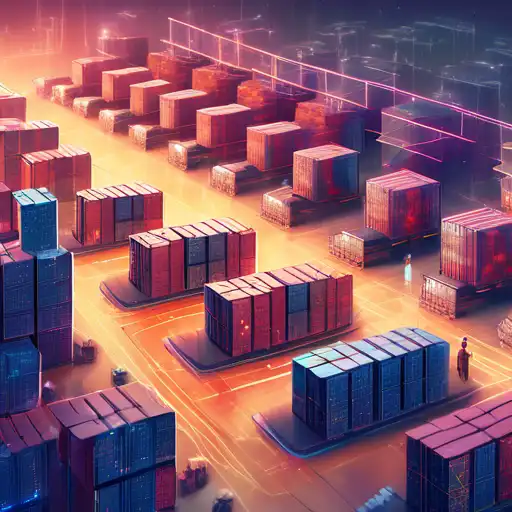The Transformative Power of Blockchain in Modern Supply Chains
In today's fast-paced and increasingly digital world, the supply chain industry is undergoing a significant transformation, thanks to the advent of blockchain technology. This revolutionary technology is not just a buzzword but a practical tool that is reshaping how goods are tracked, verified, and delivered across the globe.
Understanding Blockchain in Supply Chains
Blockchain, at its core, is a distributed ledger technology that allows data to be stored globally on thousands of servers while letting anyone on the network see everyone else's entries in real-time. This makes it incredibly difficult for one user to gain control of the network or manipulate the data. In the context of supply chains, blockchain offers unparalleled transparency, security, and efficiency.
Key Benefits of Blockchain for Supply Chains
- Enhanced Transparency: Every transaction or movement of goods can be recorded on the blockchain, providing a transparent and unalterable history of the product from manufacture to delivery.
- Improved Security: With its decentralized nature, blockchain reduces the risk of fraud and unauthorized activities, making supply chains more secure.
- Increased Efficiency: By automating processes and reducing the need for intermediaries, blockchain can significantly speed up transactions and reduce costs.
- Better Traceability: Companies can trace the origin and journey of products in real-time, ensuring authenticity and compliance with regulations.
Real-World Applications
Several industries are already leveraging blockchain to revolutionize their supply chains. For instance, the food industry uses it to track the provenance of products, ensuring food safety. Similarly, the pharmaceutical sector employs blockchain to combat counterfeit drugs by verifying the authenticity of medications throughout the supply chain.
Challenges and Considerations
Despite its potential, the adoption of blockchain in supply chains is not without challenges. Issues such as scalability, interoperability, and the need for standardization across industries must be addressed to fully realize its benefits. Moreover, businesses must consider the initial investment and the learning curve associated with implementing blockchain technology.
The Future of Blockchain in Supply Chains
As blockchain technology continues to evolve, its impact on supply chains is expected to grow exponentially. With advancements in smart contracts and IoT integration, the possibilities are endless. The future may see fully autonomous supply chains, where blockchain, AI, and IoT work seamlessly to create more efficient, transparent, and secure systems.
In conclusion, blockchain is not just revolutionizing supply chains; it's setting a new standard for how businesses operate in the digital age. By embracing this technology, companies can gain a competitive edge, improve customer trust, and pave the way for a more sustainable and efficient future.
